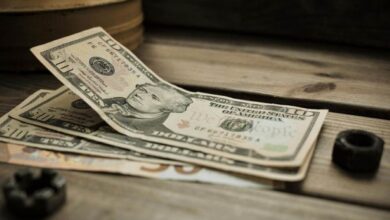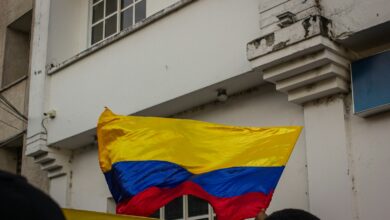OXFAM: The Pandemic Creates 1 Billionaire Every 30 Hours. Why Happens?
According to the international agency OXFAM, every 30 hours, the pandemic creates 1 billionaire and, at the same time, sends 1 million people into extreme poverty .

Photo: Freepik
LatinAmerican Post | Santiago Gómez Hernández
Listen to this article
Leer en español: OXFAM: La pandemia crea 1 multimillonario cada 30 horas. ¿Por qué ocurre?
The pandemic has hit the global economy in such a way that until now we are seeing its consequences, with setbacks in several well-being indicators such as equity, poverty, multidimensional poverty, malnutrition, and famine. However, in parallel, another opposite phenomenon has been evidenced: the increase in large fortunes. According to the international organization OXFAM, every 30 hours, and thanks to the pandemic, there is a new billionaire. The most benefited industries are especially energy and food.
But OXFAM also warns that in almost the same period of time (2 days) in which a fortune of one billion dollars is created, about 1 million people are placed in a vulnerable situation with figures close to extreme poverty.
This report, called " Profiting from pain ", was released within the context of the Davos Forum in Switzerland, which brings together world leaders, billionaires, and heads of state. "The pandemic and now the sharp rises in food and energy prices have simply been a bonanza for them. Meanwhile, decades of progress in fighting extreme poverty are now receding and millions of people face impossible increases in the cost of simply staying alive," said Gabriela Bucher, Executive Director of OXFAM International.
The figures revealed that so far in the pandemic there have been 573 new billionaires and it is expected that by the end of 2022, 263 million people will enter extreme poverty. This means that every 30 hours there is a new millionaire and every 33 hours there is an additional 1 million people in extreme poverty.
But this is not the only indicator that shows that the pandemic has favored the great rich, while the rest of the planet falls into poverty. According to OXFAM, so far in the last 24 months of the pandemic, the wealth of the world's richest people has increased more than it did in the 23 years prior to the start of COVID-19. Today the combined wealth of the planet's billionaires is equivalent to 13.9% of world GDP, 4.4% more than in 2000.
What Is this Phenomenon Due to?
The simple answer is to understand that the current economic system favors these inequities and this accumulation of wealth. However, being more precise, the organization based in Oxford, United Kingdom, explains that this has developed due to the high level of privatization of industries and the creation of monopolies, the dismantling of regulation, and the rights of workers since the flight of fortunes to tax havens.
The Great Fortunes
The report reveals that the sectors that have benefited most from this increase in fortunes are the energy sector, food, and pharmaceuticals. This is related, according to OXFAM itself, to the creation of monopolies. These are declaring record profits, while workers' wages remain flat, in parallel with rising inflation and product prices.
Read also: The Best Companies to Work for In Latin America
The report highlights the case of the Cargill family, which, according to OXFAM, controls 70% of the global agricultural market. Well, last year, the company recorded its biggest profit in history: 5 billion dollars of net income and it is expected that by 2022, profits will increase.
According to Forbes, the Cargill family is made up of 90 individuals, of which 12 are considered billionaires (with more than one billion assets), 4 more than before the start of the pandemic. In addition, it is considered the fourth richest family in the United States and its emporium is related to Cargill Inc., a conglomerate with investment in grains, seeds, raw materials, and livestock, among others.
How to Solve this Growing Gap?
According to OXFAM, nations must start introducing solidarity taxes that tax windfall profits and help subsidize food and energy prices. Likewise, it is recommended to regulate and reduce the speculation about the crisis. It is also requested to implement taxes on extreme wealth and monopolies.





